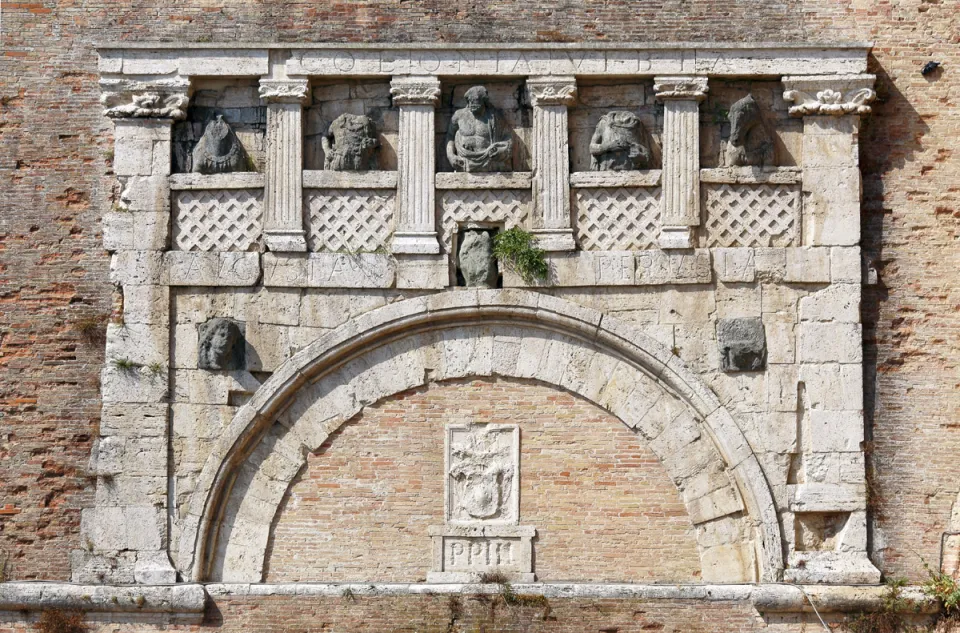Perugia, Umbria, Italy
Rocca Paolina [Italian]
Porta Marzia [Italian]

Architecture
The sculptures at the balustrade with Italo-Corinthian pilaster on top of the gate depict Jupiter in the centre between the Dioscuri Castor and Pollux, and two horse heads at the outside ends. There are two more sculptures inside the triangles between the arch and the outside pilasters, which probably show the heads of other deities.
structure overview
Architecture: Porta Marzia
built
3rd century BC
style/period
work type
material
architect / constr. phase
1540
inclusion into the Rocca Paolina fortress
Architecture: Rocca Paolina
Built between 1540 and 1543, the Rocca Paolina fortress was originally divided into three parts: the papal palace, the corridor and the tenaglia. After destruction in 1848 and almost complete demolition in the years after 1860, only the lower sections of the papal palace survived, which were uncovered and made accessible to the public between 1932 and 1965.
built
1540-1543
culture
style/period
work type
patronage
Geography
local language location name
Perugia, Italia [Italian]
historic location names
Perusia
[Latin]
Perusna
historical affiliations
250 BCE-476
285-476
476-493
493-537
537-549
549-552
552-592
592-593
593-754
754-1198
1139-1540
1540-1798
1798-1799
1799-1809
1809-1814
1814-1860
Image characteristics
maximum image resolution
5,399 × 3,558 pixel
45.7 × 30.1 cm (300 dpi)
capture date
image processing
colour corrected
copyrights
Benjamin Hemer
(contact@imaginoso.com (send an e-mail))